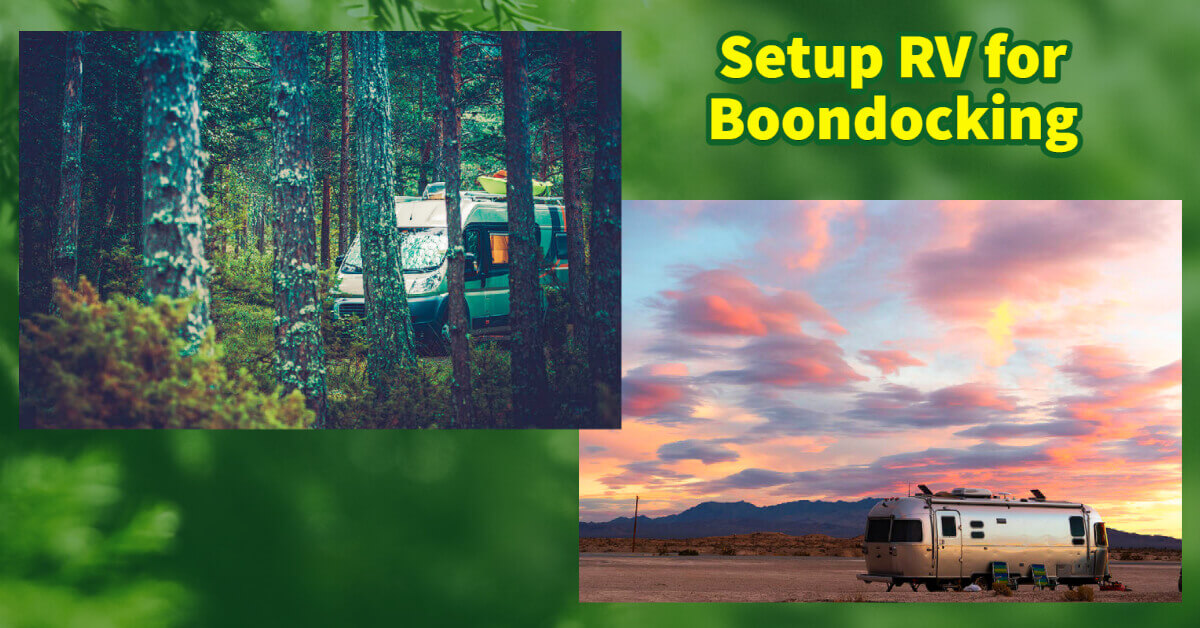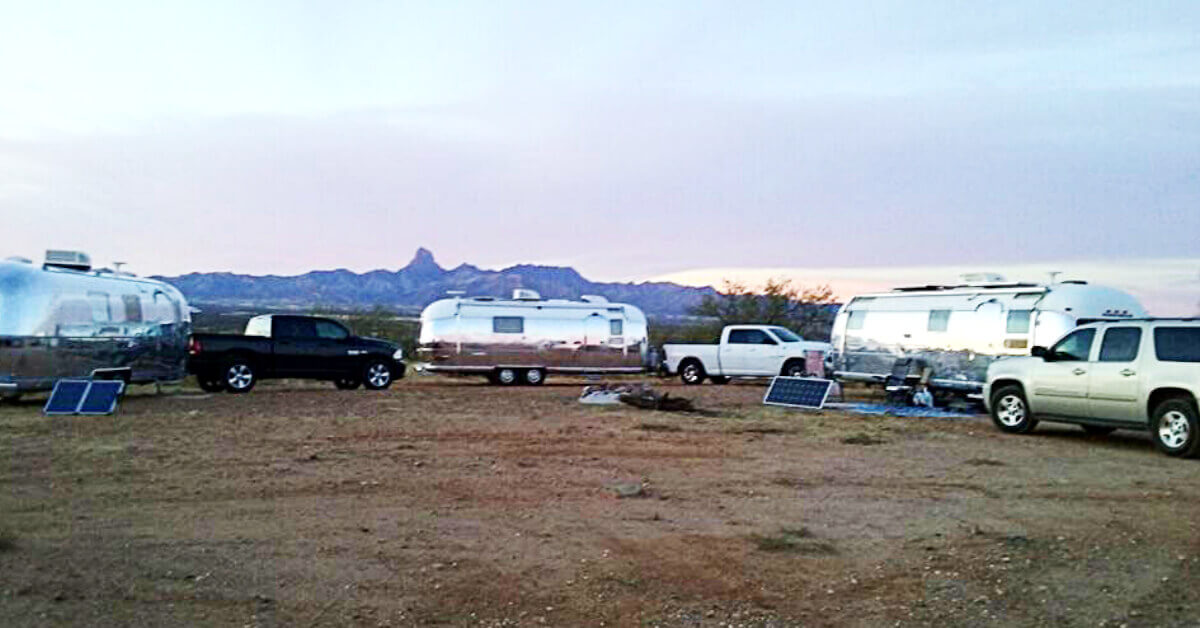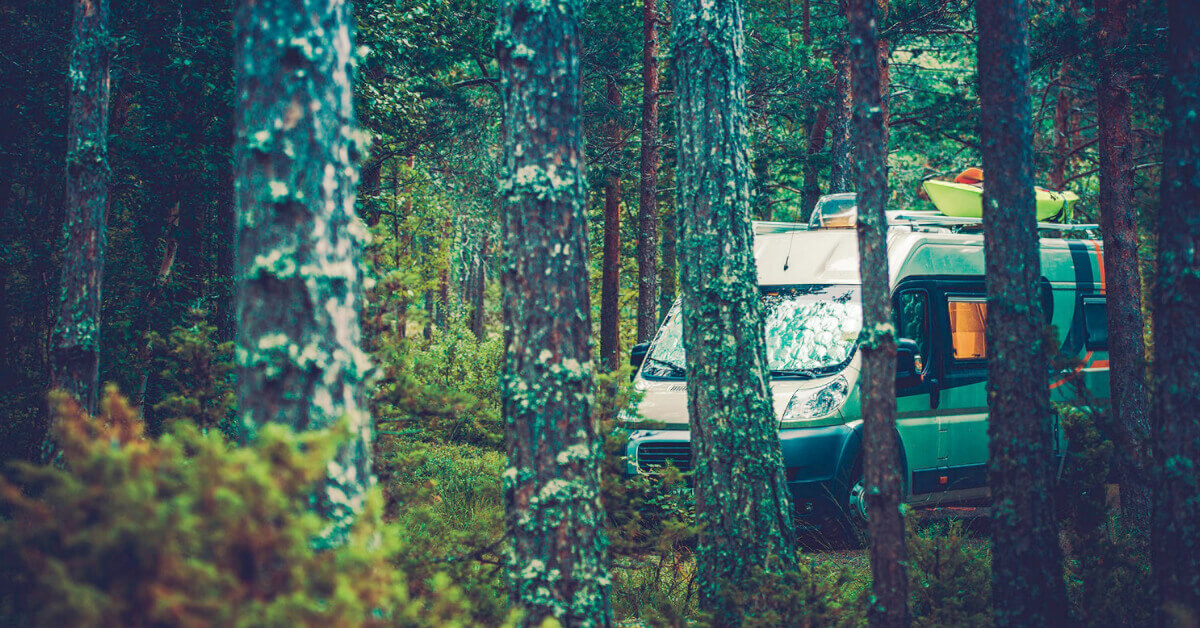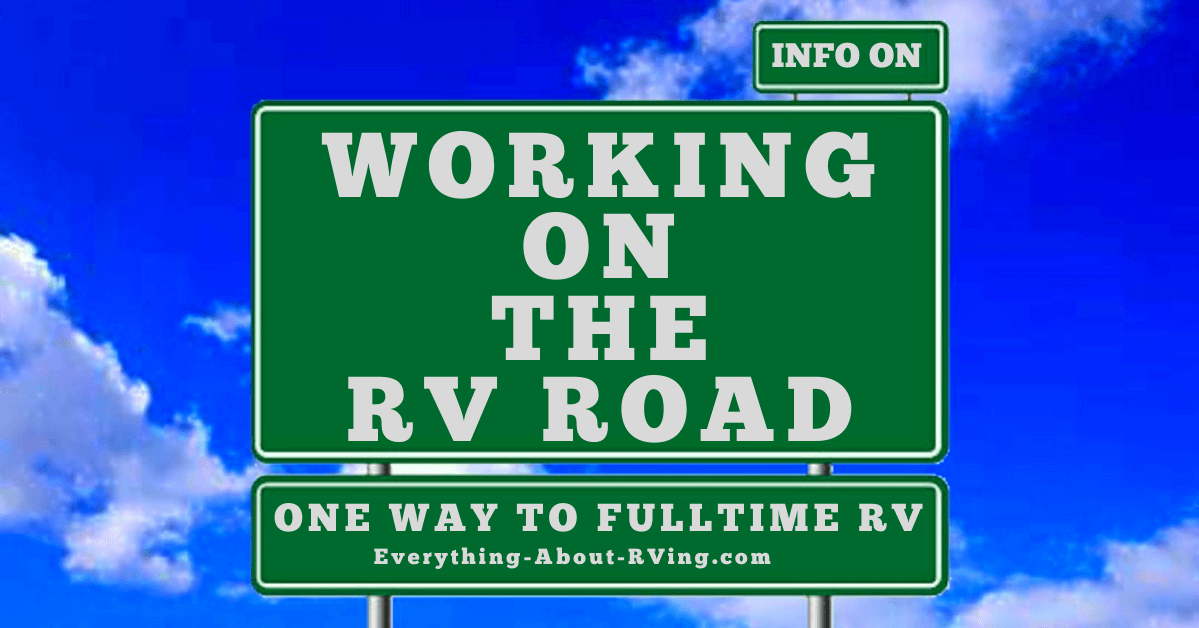- Home Page
- More RVing Tips & Tricks
- Preparing Your Rv for Boondocking
Preparing Your RV for Boondocking:
A Comprehensive Guide
In this comprehensive guide, we'll walk you through preparing your RV for boondocking.
Are you ready to take your RV off the grid and explore the great outdoors? Boondocking, which is also known as dry camping, is a popular way to travel and experience nature. However, it requires preparation and planning to ensure a safe and enjoyable trip. In this comprehensive guide, we'll walk you through preparing your RV for boondocking, from choosing the right location to conserving resources and staying safe.
Table of Contents
What is Boondocking?
Choosing the Right Location
Essential Equipment for Boondocking
- Water Management Systems
- Solar Panels and Generators
- Propane Tanks and Refilling
Tips for Conserving Resources
- Water Conservation
- Energy Conservation
- Waste Management
Staying Safe While Boondocking
- Wildlife Safety
- Emergency Preparedness
- Personal Safety
Conclusion
FAQs
What is Boondocking?
Boondocking is camping without hookups, meaning you are not connected to external resources like water, electricity, or sewage. This type of camping is typically done in remote areas, such as national forests or Bureau of Land Management (BLM) lands and allows for a more secluded and natural experience. However, it also requires more preparation and self-sufficiency than traditional camping.
Choosing the Right Location
Choosing the right location is essential for a successful boondocking trip. Look for public lands that allow camping, such as BLM lands or national forests. These areas typically have dispersed camping sites that are free or low-cost but may not have amenities like toilets or garbage cans. Be sure to research any restrictions or regulations in the area, such as fire bans or vehicle size limits.
Essential Equipment for Boondocking
When boondocking, you'll need to bring your own resources for water, energy, and propane. Here are some essential equipment items you'll need:
Water Management Systems
- Water Storage Tanks: These tanks can be installed on your RV or brought separately to hold fresh water.
- Water Filtration System: A filtration system will help remove impurities from natural water sources, making them safe to drink.
- Water Pump: A water pump is needed to move water from the storage tank to your RV's plumbing system.
Solar Panels and Generators
- Solar Panels: Solar panels can collect and store solar energy in batteries for later use.
- Generators: Generators can provide power to your RV's electrical system but may be noisy or require fuel.
Propane Tanks and Refilling
- Propane Tanks: Propane is often used for cooking and heating, so bring enough propane tanks for your trip.
- Propane Refilling Kit: If you plan to be on the road for an extended period, you can use a propane refilling kit to refill propane tanks.
Tips for Conserving Resources
Conserving resources is crucial when boondocking, as you'll need to make the most of what you have. Here are some tips for saving water, energy, and waste:
Water Conservation
- Take Navy Showers: Limit your shower time to save water.
- Use Biodegradable Soap: Use soap that won't harm the environment when washing dishes or showering.
Energy Conservation
- Use LED Lights: LED lights use less energy and last longer than traditional bulbs.
- Turn Off Electronics: Turn off electronics when not used to save energy.
- Use Natural Light: Open curtains and shades to let in natural light instead of using electricity
Waste Management
- Pack It In, Pack It Out: Take your trash with you and dispose of it in a trash receptacle.
- Use a Composting Toilet: You can use a composting toilet to reduce waste and create compost for later use.
Staying Safe While Boondocking
Boondocking can be a safe and enjoyable experience if you take the necessary precautions. Here are some tips on boondocking safely:
Wildlife Safety
- Keep Food Secure: Store food in bear-resistant containers or hang it from a tree away from your campsite.
- Keep a Safe Distance: Do not approach or feed wildlife; keep a safe distance from animals.
Emergency Preparedness
- Have a First Aid Kit: Be prepared for emergencies by bringing a first aid kit and knowing basic first aid.
- Bring a Satellite Phone: In an emergency, you can use a satellite phone to call for help in remote areas.
Personal Safety
- Keep Aware of Your Surroundings: Pay attention to your surroundings and avoid camping in secluded areas.
- Bring Self-Defense Tools: Bring self-defense tools like bear spray or a personal alarm if you feel unsafe.
Conclusion
Boondocking can be a rewarding and unforgettable experience but requires preparation and planning to ensure a safe and enjoyable trip. You can make the most of your boondocking adventure by choosing the right location, bringing essential equipment, conserving resources, and staying safe.
Now that you have learned about preparing your RV for boondocking, it's time to get out there and start your RVing boondocking adventure.
FAQs
Is boondocking legal?
Is boondocking legal?
Boondocking is legal on public lands but be sure to research any restrictions or regulations in the area.
How long can I boondock?
How long can I boondock?
The length of your boondocking trip depends on your resources and how well you can conserve them.
Do I need a special type of RV for boondocking?
Do I need a special type of RV for boondocking?
No, you can use any RV for boondocking, but some RVs may be better equipped for boondocking than others.
Can I have a campfire while boondocking?
Can I have a campfire while boondocking?
Campfires may be allowed in some areas but be sure to research any fire bans or restrictions at the site you are boondocking in and practice fire safety.





Comments
Do you have a comment on this topic? You can leave your comment in the box below.